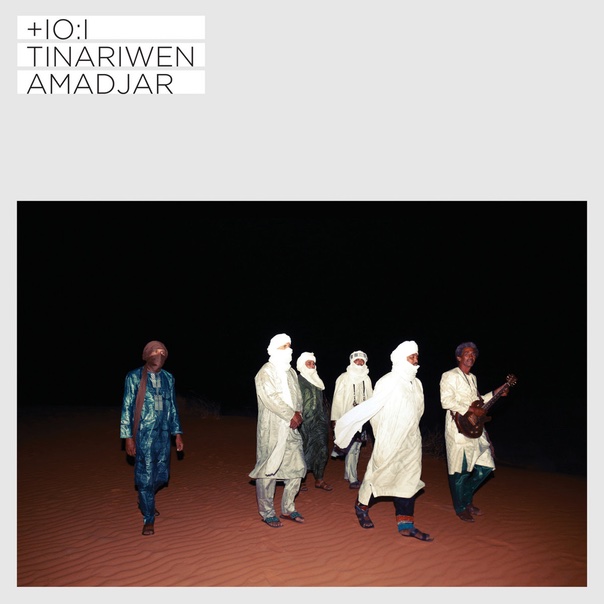ALBUM REVIEW: Tinariwen takes a trip through the Sahara on ‘Amadjar’

For the past 40 years, Malian “guitar music” collective Tinariwen have told the oft-overlooked struggles of the Tuareg people through an entrancing stylistic blend. Within a cross section of the Middle Eastern resistance music known as Tichumaren, with more recognizable elements of folk rock and blues, the collective has acquired worldwide fame within world music circles. It has only in the past few years begun to turn heads in the U.S. with albums like 2017’s Elwan, but the group’s roots run deep in North African history. Founder Ibrahim Ag Alhabib and the rest of the group share experiences with violent insurrection and forced nomadism, so it shouldn’t come as a surprise that Tinariwen’s eighth album was recorded in a van.
Amadjar
Tinariwen
Anti/Epitaph, Sept. 6
As they drove through the Sahara Desert toward Mauritania, Alhabib and company were joined by their production team to record on the go. Twelve days of impromptu sessions now yield Tinariwen’s most intimate offering. Amadjar may be the closest anyone will get to the true essence of what Tinariwen represent as a cultural and musical force.
Considering that Amadjar makes no use of post-production, the vivid timbre of opener “Tenere Maloulat” is truly astounding. Warren Ellis’ haunting violin provides some accessible melodies, but the song sets the tone for an album made bare-bones by necessity. It’s very easy to imagine that the group camped outside the mobile studio during the trodding rhythm and rusty guitar strains on “Zawal Zawal,” keeping an eye out for scorpions as they sang into the night. Almost all the cuts trail off into field recordings, presumably fireside chats in the North African wilderness—adding to the album’s mood of communal bonds. Even so, there’s a lot more to these songs than mere jam sessions.
Tinariwen found several collaborators this time around, the most unlikely of whom was drone metal godfather Stephen O’Malley. His knack for weighty hypnosis works wonders wherever he appears, though in a way unlike anything he’s done before. “Amalouna” emphasizes the rapturous voice of Noura Mint Seymali, while “Itous Ohar” provides an immersive blend of acoustic and electric guitars over a rhythmic collage of djembe and makeshift percussion instruments. “Wartilla” sees O’Malley’s distorted soundscapes commingle with Ellis’ chillingly dissonant strings, over which Abdallah Ag Alhousseyni takes over lead guitars and vocals for some nimble acoustic licks.
Like American blues, “Taqkal Tarha” masks its despondent lyrics behind catchy modulations. Micah Nelson does his father, Willie Nelson, proud on his mandolin playing as gospel-like background vocals tell stories of mankind’s hopeless devolution. As is the tradition of Tinariwen, Amadjar is replete with cutting social commentary, hoping for revolution while railing against the state of madness. The central lyrics of “Anina” center on the inherent friction between lies and truth—persecutors and their victims—in that no real love can exist there. Few groups capture the empowerment of gathering to empathize with one another in the midst of life’s tumult.
Amadjar’s sonics rely entirely on personal chemistry and ethnic authenticity. It’s hard to imagine the rousing acoustic spiritual “Madjam Mahilkamen” and “Iklam Dglour” achieving the vibes they do in the hands of any other players. The latter has the road-warn grit of those who have seen both the best and the worst of humanity, yet the former has jubilation of those who keep marching through the dry spells. Each track ebbs and flows naturally, as each member and guest artist within the Tinariwen family contributes to a transfixing anthem of strength within a crumbling world.
With some impressively technical acoustic guitar riffage and thudding percussive pulse, “Lalla” ends the album with a glimmer of hope. Like many nomadic people, the Tuareg endure with their eyes looking beyond present hardships. In the end, Amadjar reaches beyond the soundtrack to a trek across the Sahara. It’s the sound of like-minded individuals joining ranks and sining songs of struggle, persistence and overcoming.
Follow editor Max Heilman at Twitter.com/madmaxx1995 and Instagram.com/maxlikessound.
